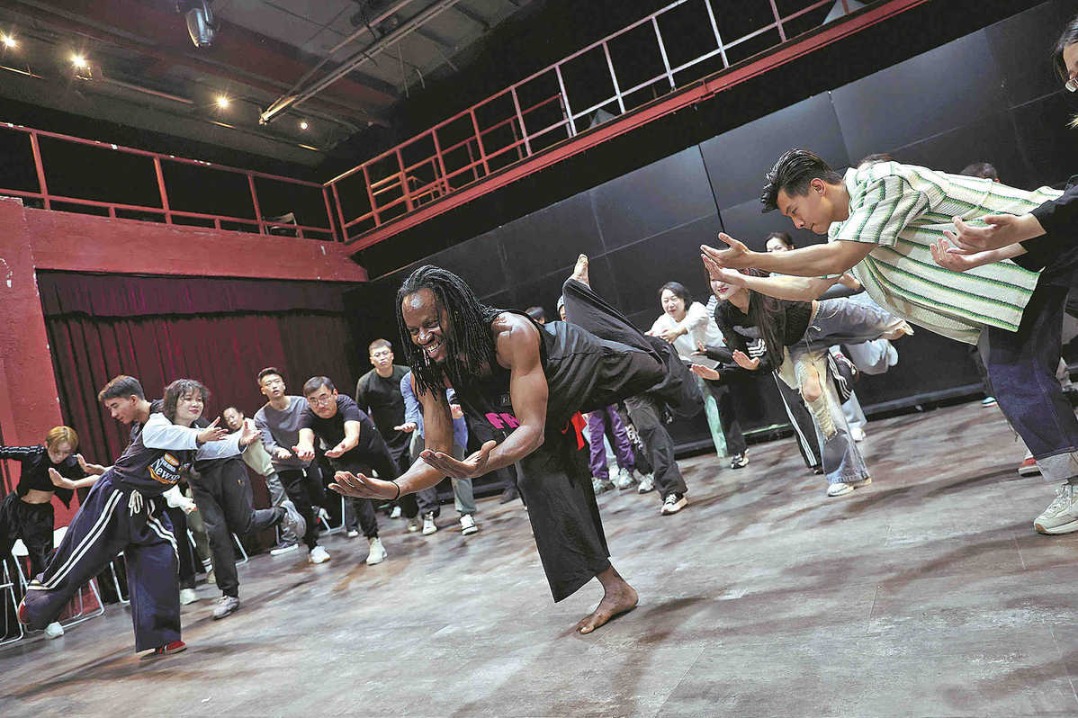Universities in US, China need each other for growth
By YIFAN XU in Washington | China Daily Global | Updated: 2023-06-12 09:18
A Harvard professor reiterated the need to restart close engagements between US and Chinese universities, while stressing that any decoupling will undermine the technological progress of both countries.
William Kirby, a professor of China studies and business administration at Harvard University, said the United States and China are both extraordinary international trading countries. "The idea that these two countries can actually separate … entirely from one another and be self-sufficient in many areas where they depend on one another is not only a mythical idea, it won't happen," he said. "It's also a dangerous idea because both will be poorer for it, and both will be less technologically advanced as a result."
Decoupling actions, such as the passage of the Chip Act signed into law by US President Joe Biden in 2022 to invest $53 billion to fund US domestic chip production and research, is not going to make the US self-sufficient in semiconductors, Kirby said.
"Self-sufficiency in almost any industry is a mythical concept in today's world," he said. He pointed out that historically, self-reliance was a policy of necessity, rather than one of choice.
Kirby returned to the US two months ago, after his first trip to the Chinese mainland since the COVID-19 pandemic. He said the central purpose of his trip was to visit Harvard Center Shanghai staff members as faculty chair of the center.
"The major purpose of my trip is to plan our reengagement with China," said Kirby, adding that this not only involved public programming but "more research collaboration with our Chinese colleagues".
Under the Harvard China Fund, the university sends 25 undergraduates to intern in Chinese companies and NGOs over the summer. "Next year, we will start a Harvard summer school in Shanghai in cooperation with Fudan University," Kirby said. "We want to reengage."
He pointed out that "it is still very early days", but added that there is great hope "we can restart the many relationships that we have", for people-to-people exchanges between the US and China, which still face many obstacles.
He cited flights as an example, saying there are few available and they are very expensive. They also take longer as US carriers no longer fly over Russia, he added.
Last month, the US Transportation Department announced it will allow Chinese airlines to increase US passenger services from eight to 12 weekly roundtrips, equal to the number of flights Beijing permits for US carriers.
However, this is still a fraction of the flights that were allowed between the two countries before the pandemic.
Kirby emphasized the special and significant role universities play in US-China interactions. "Our belief is that universities can do things together in areas, sometimes even when governments cannot cooperate," he said.
"We continue to welcome many Chinese students to come to the different schools of Harvard. And we are a much stronger university because of the Chinese students who come … to Harvard."
Kirby stressed the necessity of "making sure that the American side reengages". "Right now, there are nearly 300,000 Chinese students in the United States, and I think there are 350 American students in China," he said.
The annual report of the Student and Exchange Visitor Program by US Immigration and Customs Enforcement released in January 2023 highlighted that India surpassed China in sending students to the US in 2022.
India sent 64,300 more students to the US in 2022 compared with the previous year, while the number of Chinese students shrunk 24,796 year-on-year.
Even so, China remains the largest source of international students in the US, accounting for 30.6 percent of all international students in the country in the 2021-2022 academic year, according to the Open Doors 2022 Report released in November 2022 by the Institute of International Education. Only 382 US students were in China in 2020-2021, according to the institute.
Kirby said that there should be a "restart" on academic cooperation. "We should remind ourselves that we have a great deal more in common than we have separate in this regard. So, it is the job of universities to try to push academic and research collaboration irrespective of the politics of the moment," he said. "It doesn't make it easier, that's for sure. But it is our job."
Kirby said that there has been "intense" cooperation between US and Chinese universities for many years, and added that Chinese universities are quickly rising up the rankings of academic institutions and are now among the very best in the world.
"No country is investing more in higher education and research than China," he said. "And that's why American universities, along with European, Japanese, Australian, you name it, really want to cooperate with China.
He said that both governments should allow the greatest degree of cooperation possible as this will not only benefit faculties and students, but both countries.
yifanxu@chinadailyusa.com
























